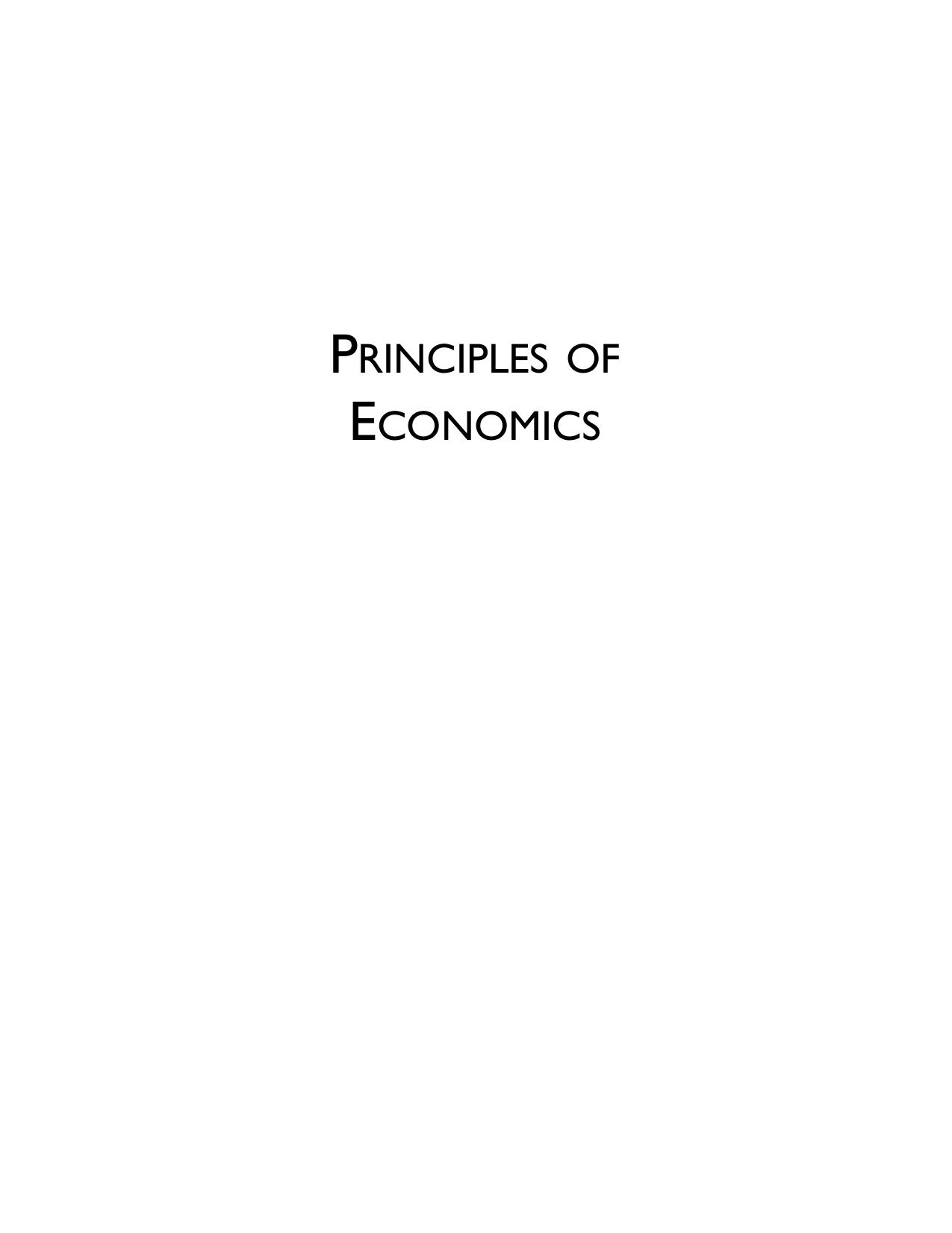Principles of Economics by Carl Menger

Author:Carl Menger [Menger, Carl]
Language: eng
Format: epub, pdf
ISBN: 978-1-93355-012-1
Publisher: Ludwig von Mises Institute
Published: 2007-11-06T16:00:00+00:00
CHAPTER IV
THE THEORY OF
EXCHANGE
1.
The Foundations of Economic Exchange
“Whether the propensity of men to truck, barter, and exchange one thing for another be one of the original principles in human nature, or whether it be the necessary consequence of the faculties of reason and speech,” or what other causes induce men to exchange goods, is a question Adam Smith left unanswered. The eminent thinker remarks only that it is certain that the propensity to barter and exchange is common to all men and is found in no other species of animals.1
First, in order to clarify the problem, suppose that two neighboring farmers each have a great abundance of the same kind of barley after a good harvest, and that there are no barriers to an actual exchange of quantities of barley between them. In this case, the two farmers could give free rein to their propensity to trade, and could exchange 100 bushels or any other quantity of barley back and forth between themselves. Although there is no reason why they should desist from trading in this case if the exchange of goods, by itself, affords pleasure to the participants, I believe nothing is more certain than that these two individuals will forgo trade altogether. If they should nevertheless engage in this sort of exchange, they would be in danger, precisely because of their enjoyment of trade under such circumstances, of being regarded as insane by other economizing individuals.
Suppose now that a hunter has a great abundance of furs, and hence of materials for clothing, but only a very small store of foodstuffs. His need for clothing is thus fully provided for but his need for food only inadequately. A nearby farmer is assumed to be in precisely the opposite position. Suppose too that there are no barriers to an exchange of the hunter’s foodstuffs for the farmer’s clothing materials. It is evident that an exchange of goods is still less likely in this case than in the first one. If the hunter should exchange a portion of his scanty store of food for a portion of the farmer’s equally scanty stock of furs, the hunter’s surplus clothing materials and the farmer’s surplus of foodstuffs would both become even greater than before the exchange. Since satisfaction of the hunter’s need for food and satisfaction of the farmer’s need for clothing were already insufficiently provided for, the economic position of the traders would be decidedly worsened. No one can maintain, therefore, that these two economizing individuals would experience pleasure from such an exchange. On the contrary, nothing is more certain than that the hunter and farmer will both most firmly resist offers to engage in a trade that would definitely reduce their well-being, or possibly even endanger their lives. If an exchange of this sort had nevertheless taken place, the two men would have nothing more urgent to do than to revoke it.
The propensity of men to trade must accordingly have some other reason than enjoyment of trading as such. If trading
Download
This site does not store any files on its server. We only index and link to content provided by other sites. Please contact the content providers to delete copyright contents if any and email us, we'll remove relevant links or contents immediately.
The Secret History by Donna Tartt(19085)
The Social Justice Warrior Handbook by Lisa De Pasquale(12190)
Thirteen Reasons Why by Jay Asher(8909)
This Is How You Lose Her by Junot Diaz(6885)
Weapons of Math Destruction by Cathy O'Neil(6279)
Zero to One by Peter Thiel(5801)
Beartown by Fredrik Backman(5751)
The Myth of the Strong Leader by Archie Brown(5507)
The Fire Next Time by James Baldwin(5442)
How Democracies Die by Steven Levitsky & Daniel Ziblatt(5218)
Promise Me, Dad by Joe Biden(5153)
Stone's Rules by Roger Stone(5087)
A Higher Loyalty: Truth, Lies, and Leadership by James Comey(4960)
100 Deadly Skills by Clint Emerson(4924)
Rise and Kill First by Ronen Bergman(4788)
Secrecy World by Jake Bernstein(4752)
The David Icke Guide to the Global Conspiracy (and how to end it) by David Icke(4717)
The Farm by Tom Rob Smith(4507)
The Doomsday Machine by Daniel Ellsberg(4490)
